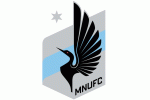Yeah, like firing another manager is going to change anything. The Cubs are a shit organization, no manager past, present or future can change that.
And this rebuilding bull crap will fail. The only way to remove the legacy of losing is to win, NOW, not five years from now. They have the money to do it, Cubs fans are just too stupid to hold anyone in that organization accountable. All those idiots care about is getting drunk and stuffing their face with overpriced food at that shitstain of a stadium that every player in the league hates playing in... suckers.
http://www.suntimes.com/sports/base...ect-has-taken-on-as-much-fiction-as-fact.html
It’s not often you see three clinching games in as many days at the same ballpark. But the Cubs reached another mile marker Tuesday by clinching a last-place finish for the first time since 2006. They got to watch the Atlanta Braves celebrate a division title Sunday and the Pittsburgh Pirates at least a wild-card berth Monday.
How quickly will the on-field misery for players and fans continue? How many more doomed-from-the-start seasons will be endured until somebody besides the opponent is celebrating at Wrigley?
Feel free to debate the merits of “In Theo We Trust” and “Wait Till Next Year.” But beware of at least a few of the more common myths surrounding this team and this rebuilding process:
Myth 1: Theo Epstein is an Ivy League genius who’s ahead of the curve among baseball executives when it comes to the latest analytics and new frontiers in competitive advantage.
Fact: Yes, he’s an Ivy League grad (Yale). And maybe he’s a genius. He often is referred to as the smartest guy in the room by baseball people — albeit ironically by some critics, if sincerely by his close associates.
But as smart as he and his trusted colleagues are, he and a select few executives haven’t been ahead of the curve for much of the last decade. The so-called “Moneyball” phenomenon has filled front offices coast-to-coast with top-heavy, often Ivy League-educated management teams, each with proprietary information/analysis systems, countless law degrees and Wall Street-caliber cost-to-value management skills.
Myth 2: The Cubs are a big-market, big-revenue team capable of using their financial muscle to do to the National League Central what the New York Yankees and Boston Red Sox have done to the American League East for years.
Fact: The Cubs used to have a significant revenue advantage over the rest of the division and, according to Forbes, were the most profitable team in the majors last year. But new ownership has abdicated that position for four seasons through its highly leveraged purchase (the profitability ranking has as much to do with decreased baseball spending). Chairman Tom Ricketts — who admits debt management is a factor in current baseball spending — has suggested repeatedly that the baseball budget won’t be restored until new ballpark and television revenues are realized, which is likely at least a year away.
Bottom line: The Cubs are effectively, as one sports economist said, behaving like a “mid-market team.”
Myth 3: Epstein has done this before successfully.
Fact: Not even close. He won the World Series twice as the general manager of his hometown Boston Red Sox, in 2004 and 2007, but only after inheriting a 2003 team that had five consecutive winning seasons (the last with 93 wins), two 20-game winners in 2002 (Pedro Martinez and Derek Lowe), Jason Varitek behind the plate and Manny Ramirez in the middle of the order. Then David Ortiz fell out of the sky when the Minnesota Twins couldn’t afford to go through arbitration and non-tendered him.
Even the 2007 team, which featured Epstein acquisitions Curt Schilling and Daisuke Matsuzaka, along with homegrown Dustin Pedroia and late-season addition Jacoby Ellsbury, likely wouldn’t have won without Ortiz — or Varitek or Ramirez, for that matter.
Bottom line: The kind of extreme overhaul the Cubs are undergoing is like nothing Epstein has experienced in his baseball career.
Myth 4: As Ricketts told the Sun-Times this month, “There’s no other way to do it. It’s not like this is genius.”
Fact: Ricketts is right in the most basic sense about building a strong organization through player development. But sacrificing big-league seasons to rebuild the farm system — by design using free agency to sign buy-low veteran players who can be flipped for prospects during a bad season — is anathema to the premise of major-league competition and charging admission.
Never mind the argument about spending big on post-prime veterans like the Yankees and Los Angeles Dodgers have — or Epstein’s Red Sox, for that matter. But what if the Cubs had been able to afford to sign international building blocks such as Yu Darvish and Yoenis Cespedes? What would that have made 2014 look like, especially if they had the means to do more than dream this winter about going after 24-year-old Japanese right-hander Masahiro Tanaka (20-0, 1.24 ERA, barely a walk per nine innings)?
Myth 5: This has been a bad two or three years, but it’s no big deal historically for this club. After all, these are the Cubs.
Fact: Assign whatever higher purpose you like to the early years of the Ricketts and Epstein Eras, but the Cubs have never lost more games in a two-year span than this (194), and they are just two losses short of the three-year franchise low (287 from 1960 to ’62). They weren’t charging an average of $46 per ticket in 1962, either. Even the ’62 equivalent of $6 would get you three bleacher tickets for the All-Star Game that summer at Wrigley Field.









